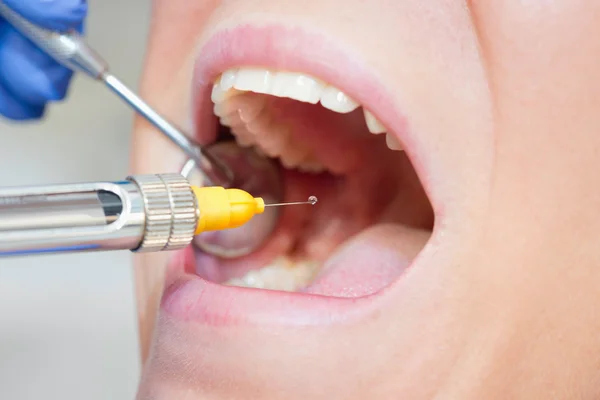Lots of people get nervous when they have to go to the dentist, especially if they have had bad experiences there in the past. This is especially true for people who live in California, whose environment and way of life may mean they have special dental care needs.
Modern dentistry is lucky because there are many types of drugs available to make sure that everyone is comfortable and pain-free during their dental treatment.
For everything from regular check-ups to more complicated procedures, dental care in Murray Hill can give you the right amount of anesthesia for your needs and ease any dental fear you may have. This article will talk about the different kinds of dental anesthesia, how they can be used, and how safe they are.
Getting to know the world of dental anesthesia
Dental sedation is a broad term for a group of drugs used to ease pain and worry during dental treatments. Your dentist will tell you what kind of anesthesia to use based on how difficult the process is, your personal needs, and how much worry you can handle.
Local anesthesia means numbing a certain area
Most of the time, dentists use local sedation to make dental treatments less painful. It involves freezing a certain part of the mouth, like the gums, so the dentist can do fillings, crowns, and root canals without making the person feel pain.
Lidocaine is a popular local anesthetic used in dentistry. It has many benefits, including relieving pain and keeping the mind awake, working quickly, and having few side effects.
Oral sedation, laughing gas (nitrous oxide), and IV drowsiness are some of the drugs used in sedation dentistry to help patients feel calm and at ease during dental procedures.
Fear and anxiety can be eased with these techniques, which can also make the process more comfortable and easier to handle. Local anesthesia and relaxation are often used together for treatments that are painful or upsetting.
General anesthesia makes you unconscious
When you get general anesthesia, you are knocked out for the whole process. This type of anesthesia is usually only used for complicated surgeries or when sleep and local anesthesia are not enough. A skilled doctor gives general anesthesia, which needs to be closely watched during the process.
When do you need general anesthesia?
- A lot of dental work was done on several teeth
- Surgery on the jaw or care for face fractures
- Dental treatments for people who are very afraid of or anxious about the dentist
Patient safety is very important
When dentists use sedation for treatments, they put the patient’s safety first. A full review of the patient’s medical background is done before anesthesia is suggested.
This makes sure that any risks that might come with drugs are kept to a minimum. Dentists and anesthesiologists are also trained to keep a close eye on patients during the process and deal with any problems that might come up.
The following table lists the different kinds of dental anesthesia:
| Type of Anesthesia | Description | Benefits | Uses |
| Local Anesthesia | Numbs a specific area of the mouth | Targeted pain relief, maintains consciousness | Fillings, crowns, root canals |
| Oral Sedation | Medication taken orally to induce relaxation | Reduces anxiety and fear | Procedures causing moderate anxiety |
| Nitrous Oxide Sedation | Inhaled gas causes a light and euphoric feeling | Reduces anxiety, promotes relaxation | Short procedures |
| IV Sedation | Medication administered through a vein for deeper sedation | Reduces anxiety, creates amnesia for the procedure | Complex procedures causing significant anxiety |
| General Anesthesia | Renders you unconscious | Complete pain relief, amnesia for the procedure | Complex surgical procedures, patients with severe dental phobia |
How to pick the best anesthesia?
Together, you and your doctor will decide which type of sedation will work best for you. Things like how hard the operation is, your medical background, and how anxious you are will be taken into account. Do not be afraid to talk to your doctor about your worries and tastes if you want a good dental experience.
You can feel more confident and at ease about your next dental appointment if you know about the different kinds of dental drugs and how they can be used.
